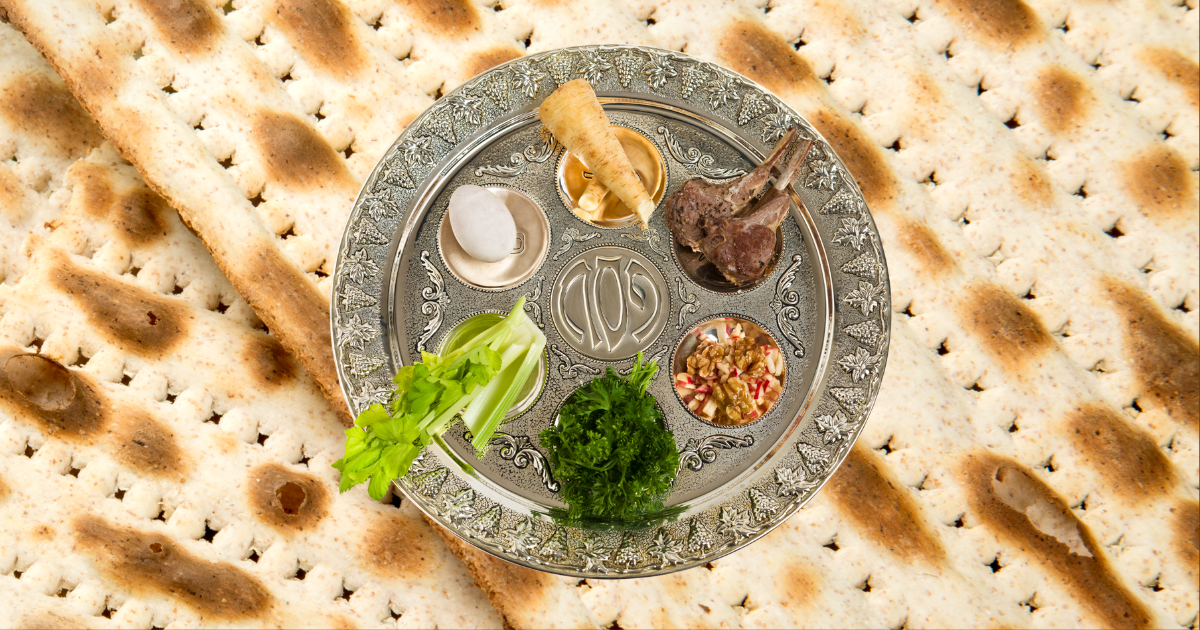Understanding the Significance of Passover
Passover, known as Pesach in Hebrew, is a cornerstone of Jewish tradition, commemorating the Israelites' liberation from Egyptian slavery over 3,000 years ago. While deeply rooted in history, the themes of Passover—freedom, resilience, and renewal—are just as relevant today as they were then.
Even though many of us enjoy physical freedom, we may still live in emotional or mental bondage—confined by limiting beliefs, paralyzed by fear, or shaped by past experiences that no longer serve our growth. These invisible chains can be just as powerful as physical ones, holding us back from living fully and authentically. The journey out of Egypt is not just a historical story—it's a symbolic reminder that personal liberation is possible. Each year, Passover invites us to identify and confront the inner Pharaohs we still unknowingly serve
5 Personal Lessons from Passover
1. Cherishing Freedom and Letting Go of Internal Oppression
Passover celebrates the Israelites' emancipation from physical bondage. True freedom isn’t just about external circumstances—it’s the ability to choose your thoughts, your responses, and the stories you tell yourself.
Reflection: Begin to notice the language you use when talking about yourself. Are your thoughts and words empowering, or do they tear you down? What beliefs or fears keep you from living fully?
Do any of these limiting beliefs sound familiar:
❌I’m not good enough.
❌I’m not good at technology/managing money/relationships.
❌I don’t deserve happiness/success/love.
❌Things will never change.
❌I don’t have time.
This Passover, acknowledge when these thoughts occur. Here's my go to when I have unkind or self-doubting thoughts, “Thank you for caring. F$#k you for sharing." Our thoughts are meant to “keep you safe and the same.” However safe and same doesn’t allow for growth.
2. Embracing Humility and Gratitude
Passover invites us to remember that true gratitude stems from humility—the ability to recognize that we are not in control of everything, that we have been helped, and that we are still learning. Ego tells us we must do it alone, achieve more, or appear strong. But humility softens that voice and creates space for connection, healing, and perspective. In that softened space, gratitude blooms naturally and serves as a reminder "There is always something to be grateful for."
Reflection: Identify aspects of your life you often overlook. Cultivating gratitude can lead to greater contentment and a deeper connection to your journey.
Gratitude Activities:
Gratitude Family Activity: Have each member of the family write down one of their GRATITUDE W.I.N.S. each day of Passover. At the end, read them aloud to reflect on your blessings. Click here to download the GRATITUDE Family Activity
Join the Living in GRATITUDE Today Movement: Wake up each weekday morning and fuel up with a G.A.S. (GRATITUDE Action Step). These are simple, intentional acts you take each day to fuel your mindset, anchor your energy, and create meaningful moments. Join here.
3. The Power of Curiosity and Reflection
The Passover Seder revolves around asking questions, teaching us that curiosity leads to growth.
In the Haggadah, we encounter the Four Sons: the Wise, the Wicked, the Simple, and the One Who Does Not Know How to Ask. Each one represents a different attitude toward learning and tradition. The presence of the Four Sons reminds us that it is not only okay to ask—it’s necessary. Blind obedience can lead to cycles of silence, misunderstanding, or disconnection. But asking—even challenging questions—invites awareness, meaning, and transformation.
Reflection: Growth begins where certainty ends. Be brave enough to ask the questions that scare you. Why do I hold onto this pattern? What am I afraid would happen if I changed? Asking from a place of curiosity, not judgment, opens the door to self-discovery.
4. Standing Up to Your Inner Pharaoh
Moses had the courage to stand up to Pharaoh, but what about the Pharaoh within—the voice that tells you you're not enough? Your inner critic may sound familiar, but it’s not the truth. Reclaim your voice by choosing thoughts that empower. Speak affirmations aloud. Practice compassionate self-talk. And most importantly, Practice GRATITUDE. Standing up to your inner Pharaoh may be the bravest (scariest)—and most freeing—act of all.
Reflection: Where are you playing small? What would it look like to step into your power and take control of your narrative?
5. Welcoming Renewal and New Beginnings
Passover takes place in the spring, a season of blooming and rebirth. It reminds us that fresh starts are always possible.
Renewal doesn’t require a perfect plan—it only requires willingness. This is your invitation to clear the mental and emotional clutter and make space for who you are becoming. You are allowed to evolve, to begin again, and to bloom in your own time.
Reflection: What are you ready to release so you can grow? What seeds of change are you ready to plant?
Conclusion: A Modern-Day Exodus
Passover is more than a celebration of ancient history—it's an invitation to walk out of your own personal Egypt. As we clean our homes of chametz (leavened bread), we also have the chance to clean our hearts of resentment, fear, and self-doubt.
Through intentional reflection and the practice of gratitude, we can begin to loosen the grip of the past and step into a more empowered present.
Let this Passover be more than a ritual. Let it be your rebirth.
For more insights into Passover traditions and practices, explore resources such as the Haggadah and Passover Seder.
